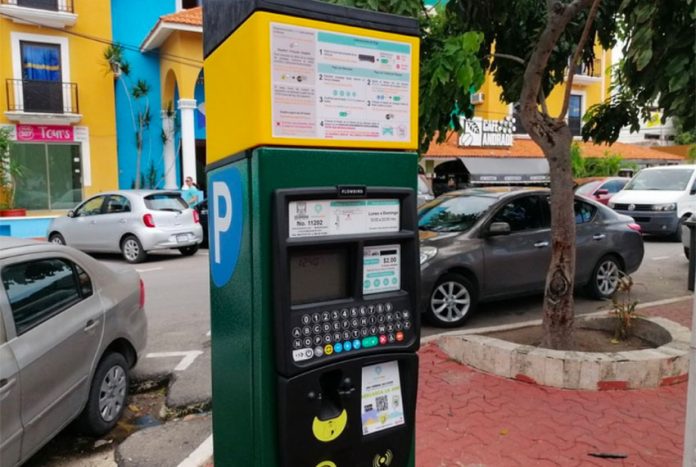Parking meters are now in operation in the center of Playa del Carmen, Quintana Roo, despite opposition from business owners and other residents.
The meters began operating on Sunday but a number of motorists had trouble using them, according to a report by the newspaper Noticaribe.
“It asks us for our license plate and other things but doesn’t accept them. We’ve been here 10 minutes already,” complained one man outside the Playa del Carmen market.
Another man told Noticaribe that he tried to pay the 10-peso hourly fee but couldn’t. Both motorists decided to look for parking spaces elsewhere to avoid the risk of having wheel clamps placed on their vehicles.
Four young people struggled to pay at a parking meter near city hall and eventually succeeded after 20 minutes.
On 15th street, the owner of a Colombian restaurant said he hadn’t heard any complaints from his customers about the parking meters but a man selling hamburgers on 4th street said they weren’t good for his business.
“It’s not good for us,” he said, adding that he heard on the radio that meter profits will go to the company managing them rather than the municipal government.
In fact, Promotora de Reordenamiento Urbano (Promourb), which was awarded a contract in November 2017 to install and operate 5,200 meters, will be required to pass on 25% of the resources it collects to the Solidaridad municipal council.
In the lead-up to the meters coming into operation, business owners and other residents of the resort city voiced their opposition to them on the grounds that they weren’t consulted and their finances will come under undue pressure.
At a protest on October 1, the head of the Playa del Carmen chapter of the Mexican Chamber of Commerce, José Luis Hernández Barragán, said the government violated the law by approving the parking meters without first consulting business groups.
In an interview with Noticaribe last week, Promourb executive Marco Antonio Blásquez Corona didn’t vouch for the government but said the operating company has responded to the concerns raised by business owners and the public in general.
Blásquez argued that the meters will encourage people to use public transit and thus help the environment and stop people from occupying parking spaces the whole day, which he said would benefit business.
People who live in the area where parking meters were approved (between Avenida Aviación and Avenida 48, and the beachfront and Avenida 35) can apply for government authorization so they don’t have to pay to park outside their homes, he said.
Source: Noticaribe (sp), La Jornada (sp)
